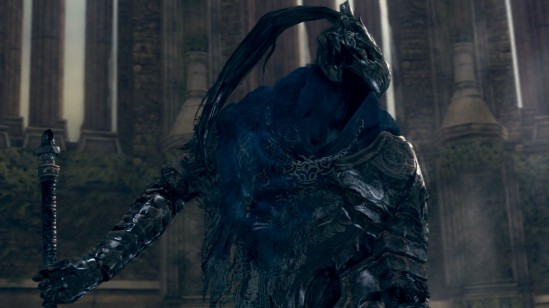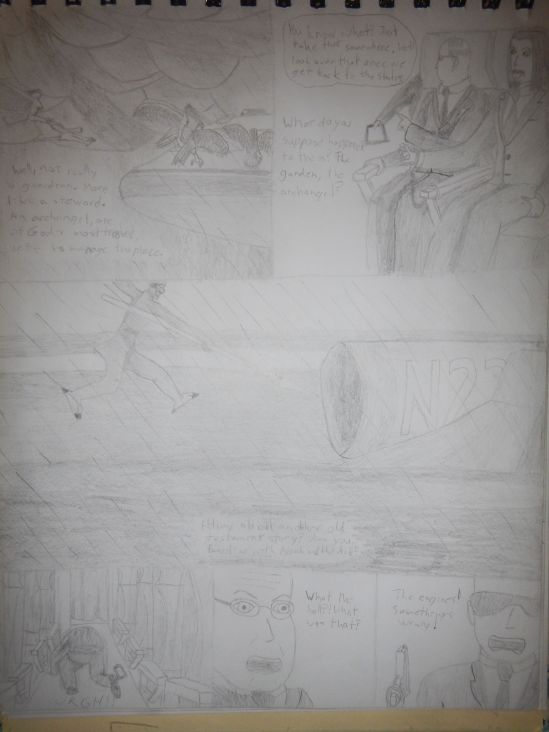One thing I’ve always appreciated about the Dragon Age series is their unusual choices in villains. The strength of the antagonist can make or break most stories, even moreso than the protagonist in a lot of cases. Dragon Age has been taking a lot of risks with theirs, and that they’ve all worked out decently is quite impressive. Dragon Age Origins started out by putting you up against the dual villains of a faceless, personality-less horde, and the whims of politics, rather than giving you an actual well-defined character to fight as most other games would. Sure, Loghain was at the center of the political storm, but the true enemy he represented was wider than just that. Dragon Age II did not improve on much, but it did up the ante on the central antagonist, pitting you against the city’s commitment to see itself destroyed. There wasn’t even a real face to the evil, that time. And yet it’s Dragon Age Inquisition that gives the series it’s most unique antagonist yet. They pulled out all the stops to bring you the core enemy this game, giving you something most games would not even attempt. For this game, the central antagonist is Corypheus, the complete stupid loser.

Corypheus is the North Korea of Dragon Age. He’s dangerous because he’s somehow amassed enough power to do some real harm before he’s taken down, but he still cannot wipe his nose without it blowing up in his face. There is nothing he does that does not make things worse for him. Corypheus shows off his sweet immortality power? Turns out that defused some of the traps lying in between you and the big macguffin he was after. Corypheus invests the core of himself in a big, intimidating, permanent show of force? That ends up creating a vulnerability you’ll exploit later. Even his greatest triumph, marching down to your house and kicking you and all your homies right out of it, ends up being his undoing as it gets you crowned inquisitor and solidifies your political base. Also, that ended with you hitting him with a mountain. A whole blasted mountain!
One thing that really strikes me is how easily the writing of this villain could have ruined the story. There’s a number of ways to have a good antagonist, but usually, you want them to either be threatening or relatable. Corypheus fails on both counts. He is absolutely the opposite of what most authors would want in their work. It’s hard to maintain a sense of danger when every time you see him, he’s in the process of screwing something up, and it should be hard to relate to such a total dickweasel. Corypheus is not what you’d normally want in a compelling antagonist. Yet he still manages to make a decent villain. How is that?
Well, part of it is that the challenges you face are more part of a machine operated by Corypheus than any traditional You vs. Hostile Force conflict most games will present, so he doesn’t really need to be the big bad wolf, he just needs to set things in motion. But I think most of it comes down to one thing. Corypheus may not be relatable, but he is at least interesting, because of the way he’s presented. Corypheus is not the traditional dark force you’ve seen in so many games, the inhumanly wicked being. He is evil, but he is evil in a very understandable manner. He is simply a person handed too much power, whose existence is centered around one central flaw that ends up dragging him down.
In this case, it’s all pride. Pride is his elemental weakness, the vulnerability the plot hits for extra damage. Every time he loses, every opening he leaves, every resource he lets slip through his fingers, it’s all because he was acting in some way to manipulate other’s perception of him and satisfy his pride. As flaws go, it’s not particularly subtle, but it does help to round him out, make him more interesting. Flaws are the building blocks of characters. Authors have known this since the days of Oedipus. People are going to be drawn more to a flawed human being than they are the pure white Mary Sue. And it makes no difference what role they play. You see flawed characters in the protagonists’ side so often, while the antagonists, evil though they may be, often seem to fit an idealized model besides that. Yet, as Corypheus demonstrates, flaws are important for villains as well.
I don’t think Corypheus will be topping any character lists. Though his flaw does demonstrate some thoughtful writing, it doesn’t change the fact he’s still kind of a wiener. But the flaw that guides him does make him a more interesting and more understandable villain, even as he never puts up an effective fight.









